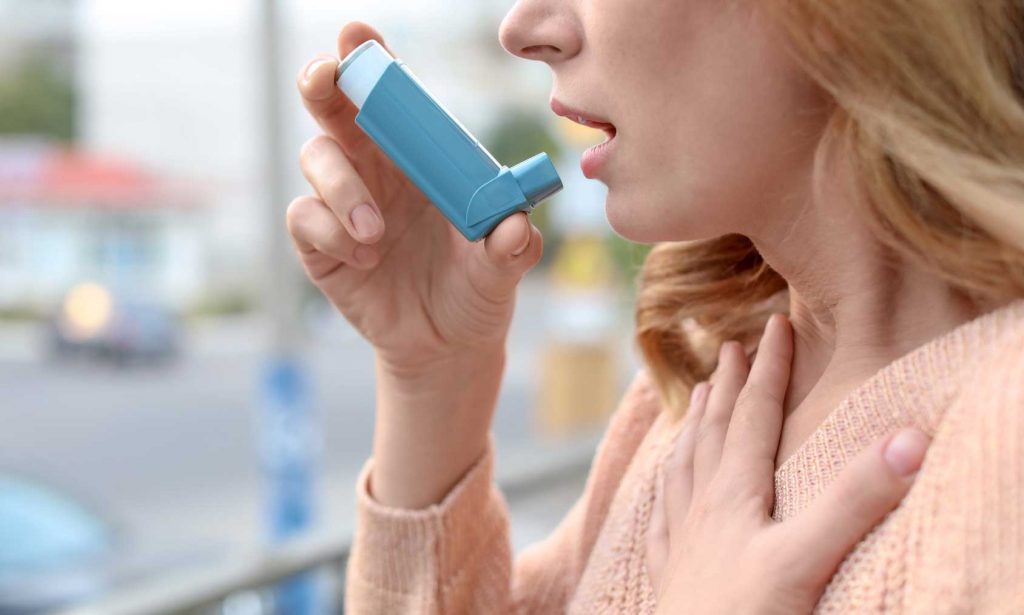
Health Impacts
of Air Pollution
Respiratory diseases | Life expectancy | Heavy metals
The impacts of increasing air quality issues on the environment is poorly addressed, specifically, this is becoming a major concern in tropical countries such as Sri Lanka. Sri Lanka is facing rapid air pollution with rise in particulate matter and noxious gases mainly from vehicular emissions, industrial emissions and urbanization.

Research has found that people aged 45-50 who live close to a polluted environment had a 50 percent higher risk of getting asthma, wheezing and lower lung function over a five-year period than those who lived more than 200 meters away. Exposure to polluted air has caused serious health problems for people living in hazardous environments. Microscopic pollutants in the air penetrate the respiratory system via inhalation causing damage to the organs like lungs, heart, brain, and other organs in the body.
Polluted air affects health in the short and long term.
The short-term health effects
The short-term health effects are irritation of the eyes, nose, skin, and throat, wheezing, coughing, and chest tightness, and breathing difficulties which can be temporary, to more serious states, such as asthma, pneumonia, bronchitis, and lung and heart problems. Short-term exposure to air pollution can also cause headaches, nausea, and dizziness.
The long-term health effects
The long-term effects are permanent health effects such as accelerated aging of the lungs, loss of lung capacity and decreased lung function, and development of diseases such as asthma, bronchitis, emphysema, and possibly cancer which can ultimately lead to death.
High air pollution levels can cause immediate health problems such as aggravated cardiovascular and respiratory illness, added stress to the heart and lungs, which must work harder to supply the body with oxygen, and damaged cells in the respiratory system. The spread of epidemics, infections, and non-infectious diseases are also associated with the climate which frequently occurs nowadays. There is also a rise in diseases after the occurrence of natural disasters. Climate-sensitive diseases are also on the rise people living in warm countries are at high risk for heat-related health problems as people living in cold countries are vulnerable too cold-related illnesses.
Exposure to polluted air causes the development of skin-related diseases such as skin aging, acne, psoriasis, urticaria, eczema, and atopic dermatitis. Pregnant women exposed to highly polluted air have reported impairment in fetal growth, low birth weight, and autism in fetuses. Neurological effects too can be observed in adults and children exposed to highly polluted air.
Many cases have been reported in NCPP and in other adverse environments. The lives of those living in these environments too are placed at risk. Infants, children, old people, and ill people are vulnerable to these conditions. According to WHO air pollution is a major cause of death and other diseases globally. 9 out of 10 people breathe polluted air and around 7 million people die annually due to air pollution worldwide.
Heavy metals
The air pollutants carry particles like heavy metals Hg which get deposited in the waterways. People and animals who consume this contaminated water and the fishes have a higher chance of getting serious illnesses. A recent study conducted by CEJ, particularly on women revealed women living in close proximities to NCPP had dangerous levels of Mercury (above 1 PPM) in their hair.
In order to combat the adverse health effects due to air pollution, sustainable methods should be applied to handle health-related problems effectively.
References –
- https://www.ncbi.nlm.nih.gov/pmc/articles/PMC7044178/
- https://www.who.int/health-topics/air-pollution#tab=tab_1
- https://www.deccanchronicle.com/lifestyle/health-and-wellbeing/251117/even-low-air-pollution-levels-may-up-asthma-risk-says-study.html
- https://ejustice.lk/2019/02/20/mercury-in-hair-samples-in-puttalam/